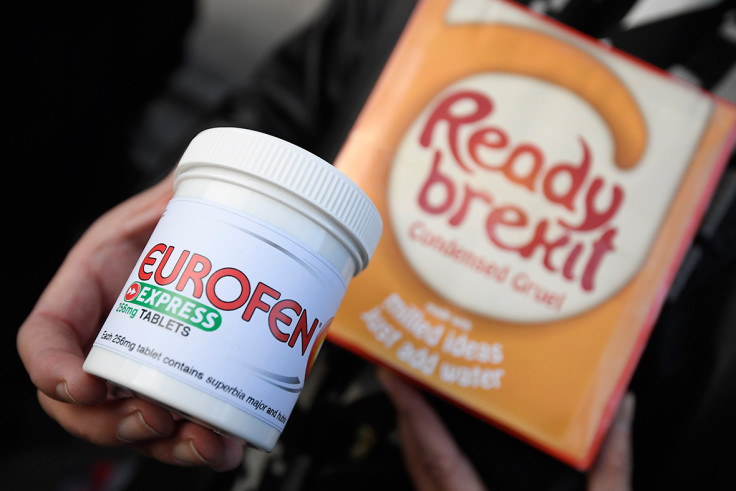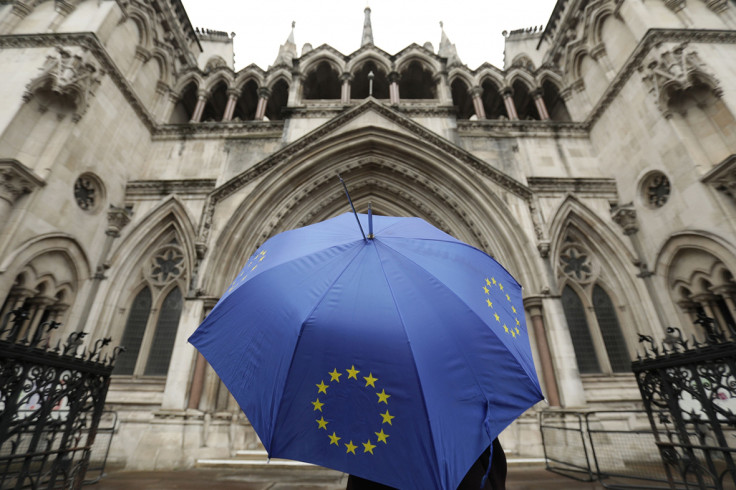Could Brexit Britain become 'Europe's cold, wet Cayman Islands'?
Lawyers discuss dual track regulation, equivalence and the potential to streamline the UK's financial regime.

The UK's financial services industry has two years to hammer out a system of dual track regulation where access to EU markets will be based on regulatory equivalence with member states.
Given that regulatory objectives will be same in UK as EU, the logical thing to do is incorporate all EU law into UK law on day one, and negotiate an EU trade deal that allows for those two regulatory regimes to march forward in tandem based on equivalency.
If equivalency means 70%, which is the view of the US, there are potential opportunities to change some EU requirements which we do not like. This could create opportunities within the EU, if with 70% equivalency, we can access member states. The UK could also create opportunities outside the EU by having a more lenient approach where there is no EU involvement.
Shanker Singham, chairman of the Legatum Institute's Special Trade Commission, said: "We need to also consider what arrangements we might have with the US as we go forward. Interestingly, Britain will probably be negotiating trade deals with the EU and US at the same time, and so ensuring that we are able to move the EU in a more pro-competitive direction will be important."
Temerity is last thing the UK wants to show towards Europe. But if negotiations were hampered by certain quarters in the EU which perhaps want to see Britain punished for leaving, London could hit back. In the most extreme case, Britain could become a nightmare for the EU, attracting lots of business to its financial services industry, while also countering the European penchant for market distortion by brokering ambitious free trade agreements with the rest of the world.
Europe's worst nightmare
Christopher Leonard, partner at Akin Gump Strauss Hauer & Feld LLP, posited this thought experiment in the event things really don't work out: "The UK could say, okay that's fine – we are going to effectively turn off regulation, lower tax and become kind of Europe's worst nightmare; a wet and cold Cayman Islands option, the low tax, low regulatory jurisdiction sitting just off-shore and attracting vast amounts of business.
"I don't know if that's politically possible and of course it would be real shame, but I do think the Europeans must be aware of these sorts of dangers entering into discussions," he said.
In the absence of passporting, which is linked up politically with free movement of people, the UK can look toward establishing equivalence where ever possible. One solution would be to obtain some kind of licence to do business in member states where necessary.
"If you want to provide your services into Europe, you will have to obtain – possibly from the UK regulator (PRA or FCA) – a European access licence, let's call it, in which you effectively contractually agree to comply with whatever higher standard of regulation maybe imposed in Europe," said Leonard.
"You would have a sort of dual track regulation. If you are sitting in London and you decide you don't need or want to access the Euro market, maybe you just have a UK only licence that might be lighter touch. You would have to do this at least on a business line by business line basis.
"It's not insurmountable; lawyers solve those problems, complexity and change is fantastic for lawyers. But it's less good for business because lawyers are expensive. The complexity of designing that in real life and agreeing it with 27 other member states – and to do that in two years is a serious undertaking."
Equivalence depends on the directive and in some cases the types of business covered by it. For example, MiFID has an equivalence regime, but it only works easily with professional clients. It will be important as part of our free trade agreement for us to agree equivalency in all EU directives and to ensure it covers retail as well as professional business.
Jacqui Hatfield, financial services partner at law firm Reed Smith said: "Ideally, access to professional clients could be by way of registration with a member state and access to retail clients could be by way of a branch in an EU member state, without the need for dual capital requirements of a subsidiary and without the need for an EU intermediate holding company."

Fintech and PSD2
EU legislation such as the Payment Services Directive is especially desirable to the UK because it opens up business opportunities for our burgeoning fintech sector. PSD2 requires banks, at the bank account holder's request, to create standardised application programming interfaces (APIs). These would be accessible to third parties (e.g. fintechs, developers and other corporates) licensed under PSD2, to make direct payments from the bank accounts at the customer's request and to access information on all their accounts in one place. PSD2 is integral to the Single Euro Payments Area (SEPA), a payment-integration initiative of the European Union for simplification of bank transfers denominated; something the UK will now have to become a member of itself and negotiate its way around.
Hatfield believes the sensible move is to implement PDS2 in 2018. She highlighted beneficial regulatory details such as the opening up of competition in the payment space and its accompanying Interchange Fees Regulation. She also pointed to the fact that if we provide payment services to the EU, we will have no choice but to comply with PSD2.
"There are three reasons why we should implement PSD2: firstly under PSP, the original PSD, you need both the payer and payee provider to be in the EU in order to be caught and for it to be in an EU currency, which includes sterling at the moment," noted Hatfield. "But under PSD2 they are saying only one of those providers needs to be in the EU. That means that if anyone wants to be doing any kind of payment business in the EU, they will need to comply with PSD2 in any event. So we might as well just implement it.
"Secondly, another PSD2 plank is the Interchange Fees Regulation which limits the amount of fees that can be charged by retailers for accepting card payments and stops them from discriminating against certain payment providers. It's good for consumers, so we should implement it.
"Thirdly, we will need to become a SEPA member in our own right and this will be based on equivalency," she said.
Outsourcing

There are some other interesting approaches such as exploring the regulatory lacuna of outsourcing. If UK firms need to set up in the EU and use that as a passport, that means two regulated entities with duplicate fees and burdens. The bare minimum a firm needs to gain a passport involves a proper office with people actually doing something and board independents and so on. But outsourcing has become a big issue; the question is how much of it can be passported back into the UK.
"If you've got a UK entity which is authorised, it won't need to worry about the EU if it isn't carrying on business in the EU, and it can do that by being very careful about the scope of what it does and how it markets its services," said Hatfield.
"It could partner up with an existing EU licenced institution and make sure that the services it provides to that EU institution don't fall within the scope of providing business in the EU. So, if permitted in any free trade agreement, it could become an agent of a regulated EU institution, or just partner up with them making sure that it doesn't do any business in the EU and that its partner is the one who is doing that. Making sure there is no direct promotion from the UK to Europe to potential customers will be key to making this work."
"I think it's fair to say that there is a lack of clarity over payment providers using the internet. I know in the UK, we have moaned a few times about the fact there seem to be providers that are non-EU who seem to be providing services in the EU via the internet and they are not regulated in the way that they should be. It may be we can take advantage of that kind of lack of clarity and do it ourselves!"
Streamlining regulation

The UK stands to gain because regulation could be better tailored to British businesses. For example, there are aspects of the national private placement regime in the Alternative Investment Fund Managers Directive (AIFMD) which we do not agree with. Potentially there are also the controversial secure customer authentication standards currently being drafted under PSD2, which currently do not have risk based proportionality built in. Another example involving capital requirement strictures is allowing smaller banks and challenger banks to model selected portfolios such as residential mortgages for instance, rather than being required to model the totality of their non-mortgage exposures.
Tobin Ashby, a partner at Pinsent Masons, said it's not realistic to expect a bonfire of regulatory red tape upon Brexit, however. "I don't think we have a regulator that's about to start stripping out regulation. If anything the move has been towards greater regulation than the EU has put in place," he said.
"Can we tailor our regulation? Well yes, but everything we do in one direction we'll lose something in another. And for each individual company and firm that is carrying out financial services that could have a different impact because of the weight of their business being either in the UK or cross border."
© Copyright IBTimes 2025. All rights reserved.






















